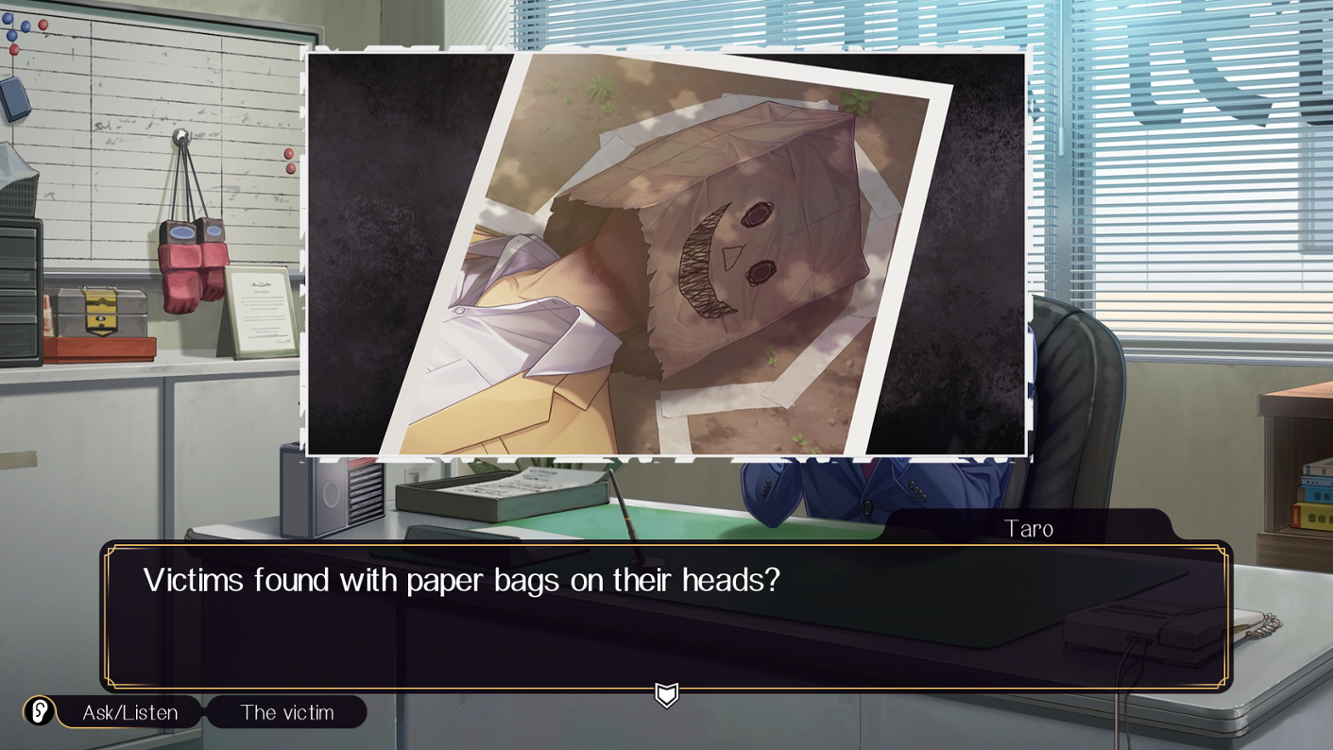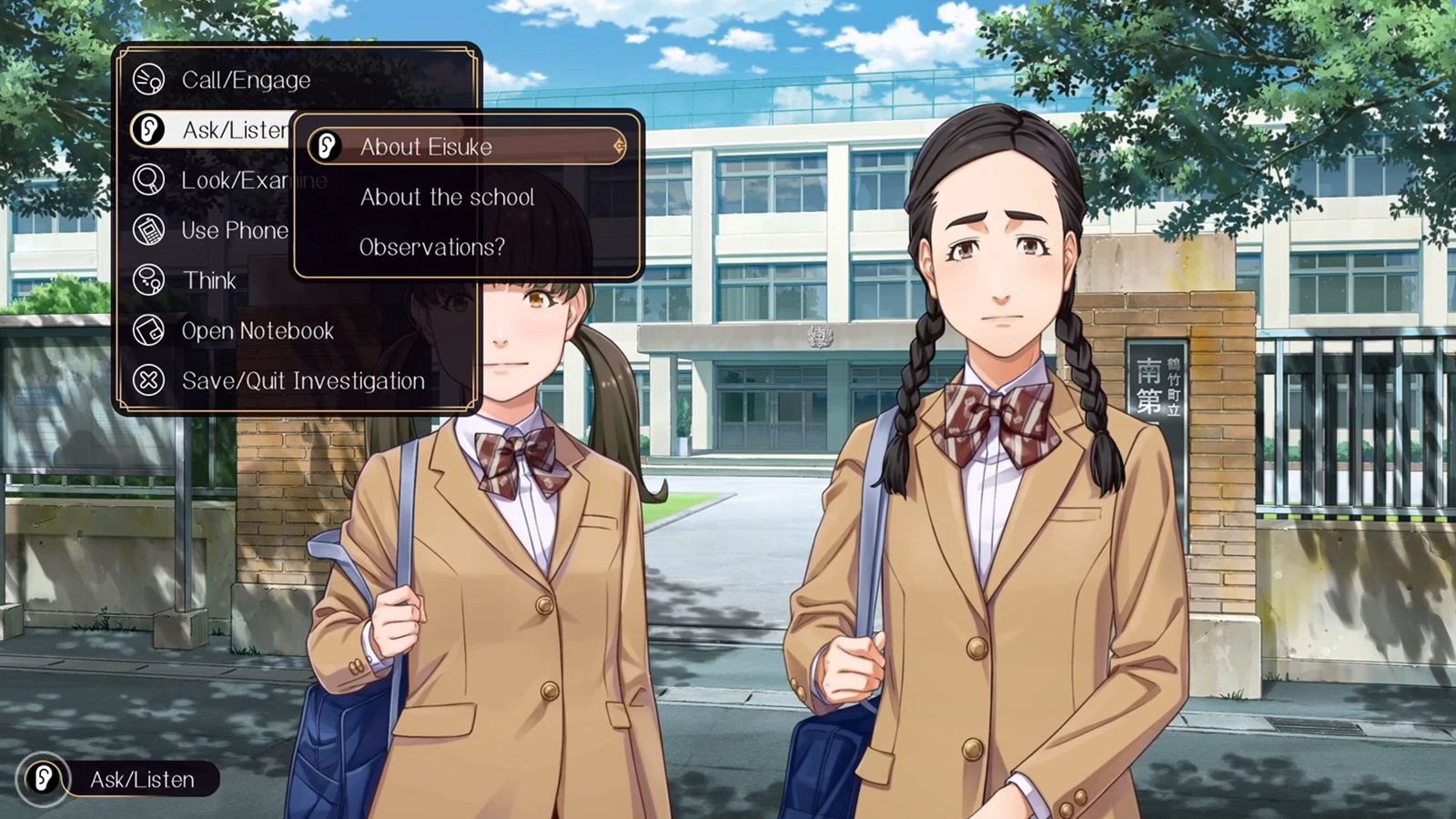Emio: The Smiling Man is one of Nintendo’s rare 18+ games that revives the classic Famicom Detective Club franchise. Is it worth it after all those years? Let’s jump into the dark story!
Famicom Detective Club
Famicom Detective Club began its journey in the late 1980s on the Family Computer Disk System (NES), under the direction of Yoshio Sakamoto, who later became known for his work on the Metroid series. The first game, The Missing Heir, and its prequel, The Girl Who Stands Behind, were critically acclaimed and quickly gathered a strong following of fans back in the day. With their blend of murder mystery and supernatural elements, combined with a unique gameplay style that leaned heavily on text-based investigation, the franchise offered something different for its era, creating a new gameplay experience on your home console. Despite the success, the franchise went dormant for decades with no new entries beyond the recent remakes, until now.
Emio: The Smiling Man marks the first original entry in over 35 years. Interestingly, Sakamoto initially struggled with the idea of continuing the series, feeling creatively exhausted after the earlier titles, and thus shifted his focus towards other Nintendo franchises. However, the success of the 2021 Nintendo Switch remakes sparked his flame for his original work, ultimately leading to the creation of Emio. This title maxes out on the dark and eerie themes so be aware that some of the game’s subjects might not be for you. The 18+ rating comes from the themes discussed in this murder mystery so be sure you don’t have a problem with the darker side of detective work.
Familiar yet new
At its core, Emio doesn’t stray too far from the formula established by its predecessors and feels like a rather classic game. Players step into the shoes of a young detective at the Utsugi Detective Agency, tasked with solving the mysterious murder of a high school student. The gameplay revolves around exploring various locations, questioning witnesses, and piecing together clues. It’s still a text-based game that comes close to those typical visual-novel games where going through the text and selecting the right option is the main gameplay loop. If you played the Famicom Detective Club games on Nintendo Switch, you know exactly what to expect from this title. If you didn’t play them, you have nothing to really worry about, Emio can easily be played as your entry point in the franchise since it isn’t linked to the previous games. Sure, there are some small nods and Easter Eggs but aside from those, this game really stands on its own. It’s divided into twelve chapters where you’re tasked to solve a shocking murder.
One of the most interesting features is the ability to switch perspectives between the protagonist and Ayumi Tachibana, your mentor. What I like about this is the fact that you get different perspectives on the case. Your character and your mentor see things differently, slowly peeling away layer after layer until you find the solution to the case. Although it offers some variation in the story and certain gameplay elements, it’s still a very linear experience. If you were hoping that this is one of those games where you have a lot of freedom and impact on how the story develops, I’ll have to disappoint you. This is a classic take on the genre so you’ll follow the story as it is served to you. Luckily, the story is without a doubt the game’s biggest strength.
A dark and gripping story
The story is where the game truly shines. The narrative begins with the gruesome discovery of a student’s body, his head covered with a paper bag bearing a sinister smile. It’s not just a murder case, it stings together folklore and urban legends the more you uncover. From a story perspective, it’s all very Japanese and relies pretty heavily on customs and traditions so it might be a bit harder for the Western market to really get into it. If you aren’t that big on Japanese culture I’m pretty sure you won’t really enjoy the story that much. Besides that, it’s also noticeable in the gameplay itself. There are some clever Japanese word plays that simply couldn’t be translated into English, making for some strange dialogues from time to time, which takes you out of the immersion of the otherwise strong story. The game is also only voiced in Japanese so it’s not for everyone.
If that doesn’t scare you away, you’ll find one of the darkest and most gripping stories ever in a Nintendo game and it will certainly push you forward to the ending. The ending itself feels a bit rushed, although it’s not Game of Thrones bad, I couldn’t shake the feeling that the ending could have been a lot more than it now. Not that it’s bad, but throughout the game, you are just encountering such heavy themes that I was expecting a different kind of ending, without spoiling it of course.
Conclusion:
Emio: the Smiling Man is a strong return for a beloved series, combining nostalgic elements with modern mechanics. It offers a gripping story filled with dark themes and a gameplay experience that, while linear, is engaging enough to keep fans going.




